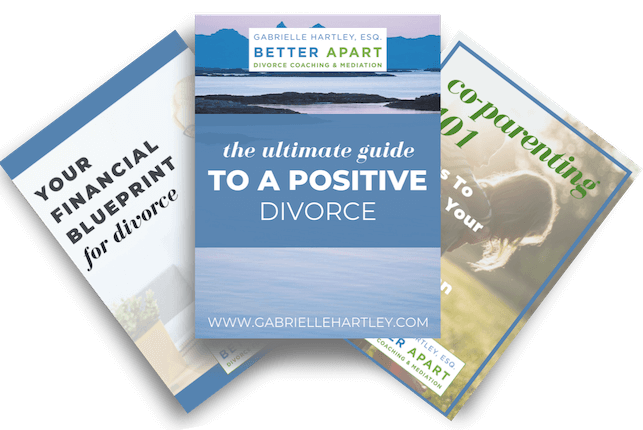Build Your Credit Score
Money makes the world go round, but when it comes to relationships, it can cause a slew of issues, to the point that it can ruin a marriage altogether. Couples argue over how to spend money, what the other chooses to buy, and how to invest money for the future. Having different views on fiscal responsibilities can put a strain on any relationship, and when the couple isn’t on the same page, they’re more likely to end up getting divorced. In fact, data curated by Time found that marriages in which money was the biggest source of conflict were more likely to end than marriages in which other issues loomed large.
Once the couple ends up divorcing over financial disagreements, both of them will take a hit, especially if they don’t take action right away after agreeing to split. This financial hit often means that each party will need to build their credit score after divorce.
The role of money in relationships
Money has always been considered taboo when it comes to marital issues. Sex and parenting are deemed acceptable concerns to talk to specialists about, but conflicts about money are typically considered a no-no. Experts note that it’s probably the main reason why people hide debt and spending habits from their partners, because of the role pleasure and pain play out around finances.
While most studies point out that it’s spending habits that usually lead to the end of marriages, there is also empirical evidence that proves that sharing finances also have an adverse impact on the relationship. There’s also the matter of who’s spending the money, especially if they are splurging on items that the other doesn’t deem appropriate. Credit scores are not something something couples like to discuss until it’s too late.
Dr. Erika Rasure is the assistant professor on the online business programs at Maryville University, and she says that some couples try to resolve their spending issues by getting creative. In her feature on the Huffington Post, she details how couples can come up with out of the box solutions to their financial issues in an effort to solve them. These solutions include being more transparent about where the money goes and being open to your partner’s criticisms about overspending.
But the truth of the matter is not all couples manage to reach that point, and resort to dismantling their union instead of trying to reconcile their differences on where they stand about money.
How divorce can hurt your credit
Many people have struggled with credit damage after a divorce, but it’s not because of the divorce itself. The impact is indirect in the sense that a divorce can lead to financial troubles that do hurt your credit. For instance, losing half of the income you’re used to receiving every month can put a damper on your regular bills, resulting in missed or late payments on loans, cards, and other important bills.

Additionally, The Balance notes that judges can sometimes declare one party responsible for shouldering the joint debt, but if that spouse fails to make a payment, the creditor will add the late payment to the credit reports of both parties. And while you may have stipulations stated in your divorce agreement, the original credit card or loan agreement still stands.
How to manage and rebuild your credit during the divorce
You need a good credit score to finance any new living arrangements as well as any other expenses after the divorce, so you need to take the necessary steps in order to protect it. There is little you can do when it comes to encountering additional costs when getting divorced, but there are things you can do to manage your credit and rebuild it afterward.
How can you build your credit score? For starters, you should first pull your credit report and figure out which accounts are linked to your credit profile. If you’ve been married for a long time, there’s a huge chance that you haven’t kept track of all accounts that are connected to your credit. Once you’ve tracked all accounts, try to remove or separate them as quickly as possible so you and your soon-to-be ex-partner won’t affect each other’s credit further.
If you have joint accounts, you should also agree on when to close them. You can even redeem the rewards you both accumulated and split them equally. Afterwards, you should make it a point to call creditors right away and inform them of the changes that are about to happen. They may agree on setting up payment plans on loans, selling an asset, or refinancing debt onto an individual account. It’s important to have this discussion early on in the divorce process so you don’t have much trouble later on.
Now, once you’re back to having individual accounts, make sure that you only spend within a set budget – keep tabs on your credit report, and most importantly, get credit on your own. You can start by opting for a secured credit card, so you can easily build your score back up and prove that you can handle credit responsibly by yourself. Repairing credit after a divorce is tough and may take a while, but if you make great financial decisions, there’s no doubt that you’ll achieve an excellent score eventually.
For more tips on navigating your finances after a divorce, check out our article on the ‘Four Ways You Can Reduce Expenses and Save Money After Divorce’.
Some links and posts are from our sponsors. Here’s how it works.
P.S. Want more tools and resources to stay positive during a divorce? Download my Free Divorce Survive & Thrive Kit below!


JBrannan is a writer who enjoys tackling the more difficult topics. Her work centers around finance, relationships, and mental health. She loves to jog and meditate in her free time.
Get Your FREE Divorce Survive & Thrive Kit!
Includes a financial blueprint for divorce, a co-parenting guide, and the BEST strategies to help you stay positive and take care of yourself during divorce and beyond.
[mailerlite_form form_id=2]


Revolutionizing the conversation around Divorce, one internal narrative at a time.
MENU
FOLLOW GABRIELLE
DISCLAIMER: The commentary, advice, and opinions from Gabrielle Hartley are for informational purposes only and not for the purpose of providing legal advice or mental health services. You should contact an attorney and/or mental health professional in your state to obtain advice with respect to any particular issue or problem.
CONTACT GABRIELLE
NORTHAMPTON ADDRESS: 76 Masonic Street, Northampton, MA 01060
NYC ADDRESS: 150 East 52nd Street, Suite 1002, New York NY 10022
STATEN ISLAND ADDRESS: One Edgewater Plaza Suite 304, Staten Island, NY 10305
PHONE: 413.341.0034/ 917.757.0980

